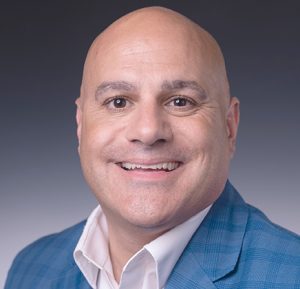VESTAL, N.Y. — Binghamton University’s Decker School of Nursing will use a $2.8 million federal grant to provide financial support for graduate nursing students.
The advanced nursing education workforce (ANEW) program of the Rockville, Maryland–based Health Resources & Services Administration (HRSA) awarded the funding.
HRSA is an agency of the U.S. Department of Health and Human Services. HRSA’s goal in funding the grant is to increase the number of advanced-practice nurses trained as primary-care providers in rural and underserved areas.
(Sponsored)

New York State Now Requires 30-Minute Paid Lactation Breaks
For the past year or so, New York employers have been adapting to the State law protections granting employees returning from childbirth leave the right to express breast milk at

The Trust Gap You Didn’t Know You Had If you ask most business owners whether they provide strong benefits, you’ll get a confident “yes.” They point to the dollars invested,
HRSA awarded the Decker School $1.2 million in 2017, which the school used to launch its ANEW scholars program.
The new grant will provide $700,000 annually for four years, according to Nicole Rouhana, an assistant professor of nursing and director of Decker’s graduate programs. The school will use that money to provide tuition assistance for up to two groups of 24 students each. The students will also receive advanced technology and a variety of clinical tools and software aimed at providing them with the foundations for telehealth.
With the new grant funding, Rouhana also intends to establish an advisory council composed of representatives from the community who are working in telehealth. In addition, she plans to hire a staff person to assist in running the program.
Focus on rural areas
The ANEW scholars program supports students in Decker’s family nurse-practitioner program who are from rural areas and wish to practice in those underserved areas once they are credentialed.
The previous grant funded two cohorts of students, including 15 students who graduated in May, the school said.
“We understand how difficult it is to recruit health-care providers to rural areas,” Rouhana, who co-wrote both grants and directs the ANEW scholars program, said in the school’s release. “For that reason, our program starts with students who already live in a rural area.”
Students selected as ANEW scholars must be from areas with a designated rural status of 4 or higher, as defined by the locale’s U.S. Department of Agriculture rural-urban community area code, which means they live outside of a metropolitan area. These students are matched with rural health-care sites within their communities, where they complete hundreds of hours of direct, supervised patient care, working with a clinical preceptor.
“This extended clinical placement fosters an incredibly strong connection between the students and the hosting clinical sites and often results in long-term employment,” said Rouhana. “This benefits both the student and the rural communities.”
Telehealth component
Telehealth is built into the curriculum for the ANEW scholars because it has become an increasingly important tool for rural providers.
Rural areas need telehealth due to a lack of specialized health-care providers, according to Ann Fronczek, assistant professor and ANEW scholar telehealth and nursing-education consultant. Those areas also need telehealth because of the “difficulties” that patients face when they are forced to travel long distances to seek care for health problems.
For this reason, continuing education in telehealth, information, and technical support are among the benefits the students’ clinical preceptors receive in return for their commitment to the students, the school contends.
Contact Reinhardt at ereinhardt@cnybj.com




